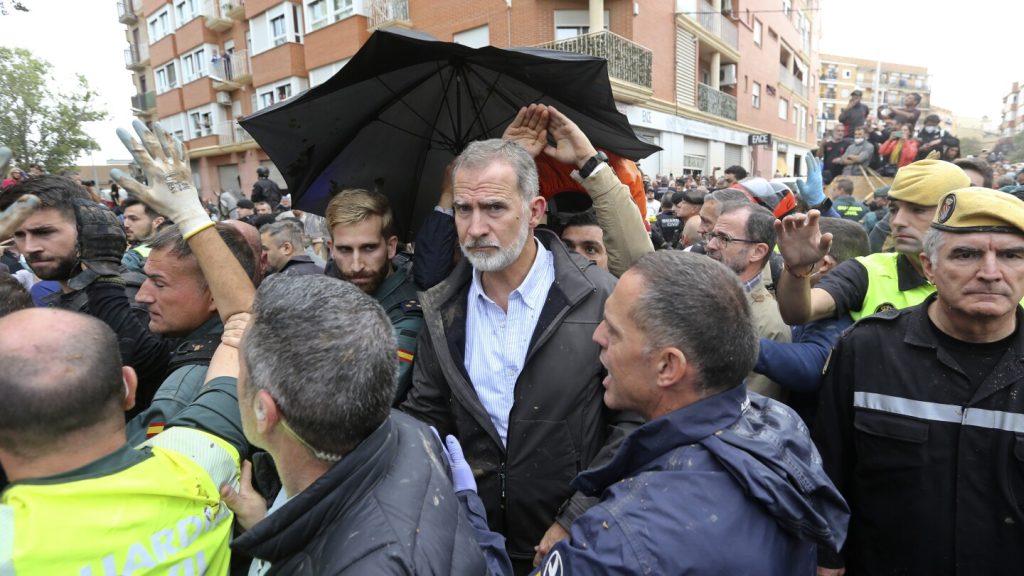Flash floods caused by heavy downpours in eastern Spain have left a trail of destruction, with 217 bodies recovered and an unknown number of people still missing. Authorities are continuing their search with the help of 5,000 soldiers, while more rain is forecast for the disaster zones. The Spanish navy has deployed marines, helicopters, and trucks with essential supplies to assist with relief efforts.
In hard-hit areas like Paiporta, an enraged crowd lashed out at Spain’s leaders during their visit to the flood-damaged region. Thousands of volunteers are working tirelessly to clear away mud and debris, despite facing challenges like water shortages. Vehicles washed away by the floods still contain bodies waiting to be identified. The recovery efforts are ongoing as the region grapples with the aftermath of the deadliest storm in living memory.
The storms that led to the flash floods concentrated over several river basins, causing walls of water to overflow riverbanks and catch people off guard. The sudden deluge covered roads, railways, homes, and businesses in southern Valencia, leaving drivers stranded on car roofs and residents seeking refuge on higher ground. Scientists believe that human-caused climate change played a role in the extreme weather event, with warmer air holding and releasing more rain, and changes in the jet stream contributing to erratic weather patterns.
This flash flood event is considered the most powerful in recent memory along Spain’s Mediterranean coast. Previous episodes in 1957, 1982, and 1996 also caused significant damage and loss of life, leading to measures like the diversion of watercourses to mitigate future flooding. The regional and national response to the crisis includes the deployment of thousands of soldiers, police officers, and volunteers to aid in search and cleanup efforts. Financial aid and economic assistance are being mobilized to help those affected by the disaster.
The Valencia regional government has faced criticism for its handling of the crisis, including delays in issuing flood warnings and mobilizing resources. Despite these challenges, a wave of volunteers has stepped in to provide essential supplies and support to those in need. The devastating impact of the flash floods highlights the increasing frequency of extreme weather events, with experts linking the cycle of droughts and floods in Spain to climate change. As the recovery efforts continue, the focus remains on providing assistance to those affected and rebuilding the affected communities.















